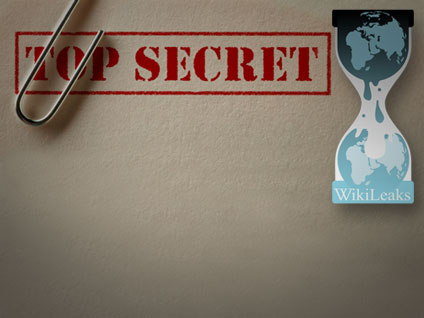3.3 Should the press really be free?
In its landmark ruling on the Pentagon Papers, the US Supreme Court ruled that "only a free and unrestrained press can effectively expose deception in government." We agree.
The ruling stated that "paramount among the responsibilities of a free press is the duty to prevent any part of the government from deceiving the people and sending them off to distant lands to die of foreign fevers and foreign shot and shell."

It is easy to perceive the connection between publication and the complaints people make about publication. But this generates a perception bias, because it overlooks the vastness of the invisible. It overlooks the unintended consequences of failing to publish and it overlooks all those who are emancipated by a climate of free speech. Such a climate is a motivating force for governments and corporations to act justly. If acting in a just manner is easier than acting in an unjust manner, most actions will be just.
Sufficient principled leaking in tandem with fearless reporting will bring down administrations that rely on concealing reality from their own citizens.
It is increasingly obvious that corporate fraud must be effectively addressed. In the US, employees account for most revelations of fraud, followed by industry regulators, media, auditors and, finally, the SEC. Whistleblowers account for around half of all exposures of fraud.
Corporate corruption comes in many forms. The number of employees and turnover of some corporations exceeds the population and GDP of some nation states. When comparing countries, after observations of population size and GDP, it is usual to compare the system of government, the major power groupings and the civic freedoms available to their populations. Such comparisons can also be illuminating in the case of corporations.
Considering the largest corporations as analogous to a nation state reveals the following properties:
- The right to vote does not exist except for share holders (analogous to land owners) and even there voting power is in proportion to ownership.
- All power issues from a central committee.
- There is no balancing division of power. There is no fourth estate. There are no juries and innocence is not presumed.
- Failure to submit to any order may result in instant exile.
- There is no freedom of speech.
- There is no right of association. Even romance between men and women is often forbidden without approval.
- The economy is centrally planned.
- There is pervasive surveillance of movement and electronic communication.
- The society is heavily regulated, to the degree many employees are told when, where and how many times a day they can go to the toilet.
- There is little transparency and something like the Freedom of Information Act is unimaginable.
- Internal opposition groups, such as unions, are blackbanned, surveilled and/or marginalized whenever and wherever possible.
While having a GDP and population comparable to Belgium, Denmark or New Zealand, many of these multi-national corporations have nothing like their quality of civic freedoms and protections. This is even more striking when the regional civic laws the company operates under are weak (such as in West Papua, many African states or even South Korea); there, the character of these corporate tyrannies is unregulated by their civilizing surroundings.
Through governmental corruption, political influence, or manipulation of the judicial system, abusive corporations are able to gain control over the defining element of government the sole right to deploy coercive force.
Just like a country, a corrupt or unethical corporation is a menace to all inside and outside it. Corporations will behave more ethically if the world is watching closely. WikiLeaks has exposed unethical plans and behaviour in corporations and this as resulted in recompense or other forms of justice forms of justice for victims.
3.4 Could oppressive regimes potentially come to face legal consequences as a result of evidence posted on WikiLeaks?
The laws and immunities that are applied in national and international courts, committees and other legal institutions vary, and we can't comment on them in particular. The probative value of documents posted on WikiLeaks in a court of law is a question for courts to decide.
While a secure chain of custody cannot be established for anonymous leaks, these leaks can lead to successful court cases. In many cases, it is easier for journalists or investigators to confirm the existence of a known document through official channels (such as an FOI law or legal discovery) than it is to find this information when starting from nothing. Having the title, author or relevant page numbers of an important document can accelerate an investigation, even if the content itself has not been confirmed. In this way, even unverified information is an enabling jump-off point for media, civil society or official investigations. Principled leaking has been shown to contribute to bringing justice to victims via the court system.
Source: http://wikileaks.org/about.html